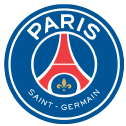The first match day of the UEFA Women's Champions League 2022-23 group stage last week was earmarked as a rough and ready litmus test for the Women's Super League's chances of producing another winner, as the two English teams still standing were drawn against the top two from Division 1 Féminine (D1F). Two wins in 24 hours would suggest the WSL has surpassed D1F, but is that really the case and if it is, what does that actually mean for foot féminin?
Ahead of this week's games, let's break it down.
The pacesetters
Olympique Lyonnais' eight Champions League titles didn't come overnight and nor were they a product of good fortune, but rather the fruits of the investment from OL president Jean-Michel Aulas. First Lyon conquered France, working their way to the top of the Division 1 Féminine tree before they found their feet in UEFA's trademark competition.
As the Swedish Damallsvenskan -- which claimed two successive European crowns between 2002-04, courtesy of Umeå -- began to slip from their plinth in international competition, Lyon announced themselves in style, with their investment and facilities outshining their counterparts on the continent as the team continued to get bigger and better.
The lure of Lyon's professionalism in the south of France was, it seems, too much for most footballers to refuse. Each piece of silverware only encouraged more of the creme de la creme to join the ranks of the dominant force in the women's game in Europe. Yet Lyon have pushed the rest of that 1% of teams in Europe, daring them to find a way of matching all they can offer and produce in a bid to dethrone them as the de facto Queens of Europe. (A great case in point: Barcelona were seemingly unstoppable last season... until Lyon stopped them in the Champions League final.)
The team was built to see off the best teams on the continent that could boast a similar level of talent, but the landscape of football in France was a far cry from the upper echelons of the Champions League, and domestic competition for Lyon always had the look of being too easy as they made blowing part-time and amateur teams out of the water into their favourite pastime. The argument was always that the team was so stacked with talent that the levels in training would be enough to keep the players sharp in lieu of more taxing league matchups.
Stagnation in France has led to slipping standards
D1F, which has had its champions over the years, continued on as it had before, with one or two dominant teams who sat above a veritable chasm to the rest of the field. In recent years, teams have worked their way up and made some noise about investing to challenge the Lyon/PSG duopoly, but financial difficulties and a change of controlling stakes has seen the kibosh put on such grandiose plans from Olympique Marseille and Bordeaux.
So, despite being home to the most successful club team in Europe, the French league has seldom been able to offer a highest level of competition or, specifically, the highest level of competitive competition. The French national team players, who've historically been reticent to leave their home league, have therefore largely distributed between the top two, narrowing the band of interest and diverse culture across the league and national team.
Given the perfect platform to showcase the best of French football once the country was awarded the 2019 Women's World Cup, the tournament failed on many adjacent fronts, beyond the sub-standard tournament staging by the hosts. Where the English FA laid out a clear plan to use the 2022 Euros as a springboard for interest and participation at home, the FFF failed to capitalise on the increased interest with their home tournament. The lack of forethought is arguably still being felt in France, where crowds remain modest; even though getting bums in seats is clearly still a wider problem in women's football, the improved numbers in WSL and America's National Women's Super League (NWSL) show that it can be done, though the long-term interest is still an unknown quantity.
Against the backdrop of a boom in England following the Lionesses' win over the summer and a domestic season that should be fiercely contested by several teams, WSL was drawn against D1F in Europe, and it was all too easy to claim it would be an accurate temperature check. Chelsea, who have been toiling to break into Europe's crowned elite with a Champions League title, stood to represent all of WSL while Lyon were the face of the French league. Yet there was also the runners-up from both leagues (Arsenal and PSG) facing off in group play, although both on paper would have been the underdogs.


A night to remember for Arsenal
Last Wednesday, Arsenal travelled to the Rhône-Alpes in fine form, yet to drop a point in the league despite losing their starting centre-back pair (Leah Williamson and Rafaelle) to semi-serious injuries. Yet Arsenal's injury woes paled in comparison to Lyon's; the eight-time Champions League champions went into the game missing nine potential starters. The trouble for Lyon wasn't just that they couldn't call upon an attacking force like Ada Hegerberg, midfield maestro Dzsenifer Marozsán or centre-back rock Griedge Mbock, but that the players available were just the wrong mix of young and old.
Instead of being balanced with experience and youth, the younger players in the team like Alice Sombath were only just starting their ascent, whereas the veterans like Wendie Renard had already reached their peak and were beginning to descend down the other side of the hill. Even players in their prime found themselves out of form and may well have been benched had coach Sonia Bompastor had a full squad available. The only positive for Lyon was the return of Perle Morroni, although the defender could only start on the bench, and when she was introduced, she showed the rust that comes with a spell out through injury.
- Arsenal smash defending champs Lyon 5-1
Despite Lyon looking a shadow of themselves, Arsenal showed the caution that comes with European experience and remained composed throughout, picking and choosing their moments to strike, and when they did, they did so with a deadly accuracy and surgical precision. The match itself was reminiscent of Chelsea's 4-1 win away to Arsenal during the 2019-20 season, when each of the Blues' four shots on target hit the back of the net; it was simply a matter of being clinical and striking the ball just so to come out on top.
At the Parc OL, as per Opta, Arsenal actually finished the match with a lower xG of 1.77 to Lyon's 1.9 despite the 5-1 win, further highlighting just how in the groove they were to hand Lyon their most humiliating defeat in the professional era, their heaviest Champions League loss and their first defeat in the competition by more than one goal since 2009.


A professional win for Chelsea
Twenty-four hours later, when Chelsea clashed with PSG some 300 miles northwest of Décines-Charpieu, it was an entirely different prospect. The team from London were the favourites given how PSG have looked out of sorts for some time. After a decade of toiling in Lyon's shadow, the Parisiennes stepped out and stepped up when they finally claimed the league title in 2020-21, this after threatening a season of greatness the previous year, before the pandemic curtailed the domestic season in France. Yet PSG retreated into themselves, the squad fragmenting with more than a few questionable decisions made behind the scenes.
- Report: Chelsea sneak past PSG 1-0
The 2021-22 season had been less than perfect and when talismanic striker Marie-Antoinette Katoto injured her ACL at the Euros, there was understandable despair from the PSG faithful. Despite bringing in Dutch duo Lieke Martens and Jackie Groenen, among other summer reinforcements, there was no clear cut centre-forward to take the mantle.
Against Chelsea, the lack of a clear No. 9 was painfully obvious as the team did little to change their approach: Kadidiatou Diani still played the role of faithful winger and creator for her absent strike-partner, yet her service was for naught, with no one player being able to provide the crucial presence in the box for the hosts. This was one of the clearest parallels with Lyon this week: the French side's managers refused to adapt their approach and play to the strengths of the players at their disposal, instead persisting with a plan built for different personnel.
Chelsea, like Arsenal, had travelled to France without their full squad: enigmatic attacker Fran Kirby was absent, as was manager Emma Hayes, who had rarely missed a game since taking charge of the Blues in 2012.
The match itself was like an off-brand bowl of cereal that could offer no snap, crackle or pop, with the only goal scored by centre-back Millie Bright from a first-half corner. It was a cold and rainy night in the French capital and served the comedown from the previous night's goal-frenzy, yet for Chelsea it was a box ticker. The away side had done all they needed to in Paris to come away with three points, their focus more on a regimented midfield shape that left an off-colour PSG attack with even fewer options.
For Chelsea, maybe there was a disconnect between the attack and midfield, but it mattered not, their mature performance made it two from two for the London teams in France.
Is the WSL now firmly on the upward trajectory?
Speaking to the media after Chelsea's win, general manager Paul Green was keen to highlight that there's still a long way to go in the group stage, but that "it's a really positive thing for the English league and does show how far it's come when in years gone by, it was probably unthinkable that English teams would come to France and win these types of games. Maybe five or six years ago, English teams wouldn't have been in this position."
Players and coaches are notorious for refusing to get ahead of themselves, preferring the "one game at a time" approach, yet Green's comments ring true, especially for a Chelsea team who for so long were billed by the English media as the team to topple Lyon when it was in fact Barcelona that broke Lyon's stranglehold in Europe. Although as Les Fenottes proved in Turin at the start of the summer, Barcelona were mere pretenders to the crown. But it's not French opposition that have historically sunk Chelsea, but German -- specifically VfL Wolfsburg, who dumped the Blues out of Europe year after year (until they didn't). Once again, the She Wolves are looking particularly dangerous at this moment in time.
As Green said, just a few years ago it would have been unthinkable for a WSL team to come to France and do what Arsenal did, but regardless of Lyon's injuries, the results speak to the broader picture of women's football in England vs. France and of the two different trajectories the game finds itself in the two countries.
It would be erroneous to say that everything in England is rosy, and that all clubs who have a women's team treat them with respect rather than simply talking a good game for PR, but the game in England is in the best shape it's ever been. While it is still generous to say that anyone can beat anyone in the league, every day the WSL looks more like the Premier League, which is an ambivalent mix of positives and negatives. In contrast, D1F still seems stuck, refusing to burst into flame after FIFA granted it a spark in 2019, with the pandemic doing little to stoke the embers.
Even though there is a hope that teams like Stade de Reims continue their commitment to a slow build that helps the flow of talent through the league and away from the top two teams, as teams like Montpellier and Paris FC continue to struggle for fluency. There is a knee-jerk worry that these group stage games will have a greater impact when it comes to top players wanting to come to France. As for Lyon, who will have to recover from a completely novel type of loss and the natural mental blow from such a humbling loss, the worry for this season is that the players Bompastor needs back to full fitness won't be back from some time to a lot of time. Worst still, in what could be a tight group, Lyon will have to overcome a -4 goal deficit, so all too fast, the holders and record-holders look to have a foot out of the door already.
So, while it might be a little too early to say the final will be an all-English affair, a fair takeaway from the early salvos in the Women's Champions League is that women's football in France is in need of some love and attention.
